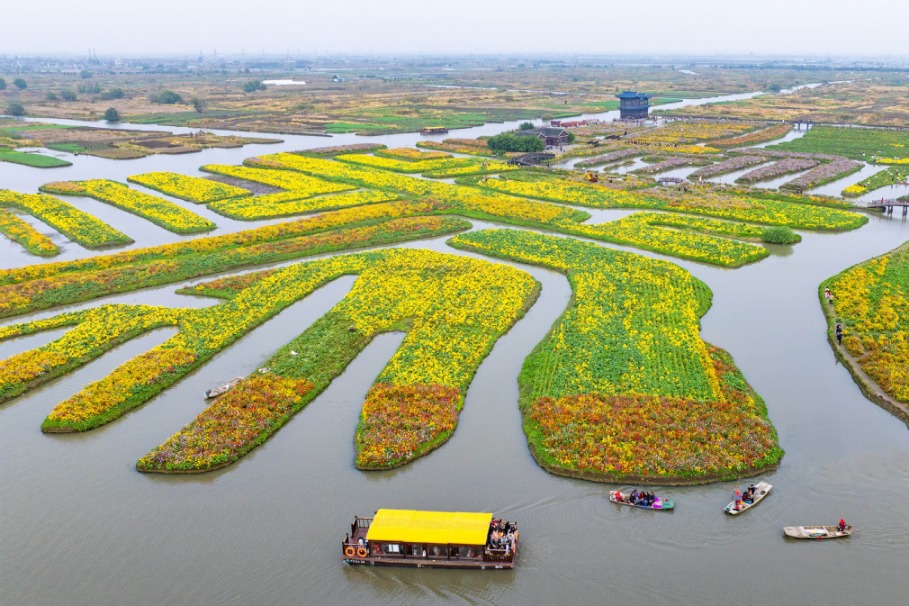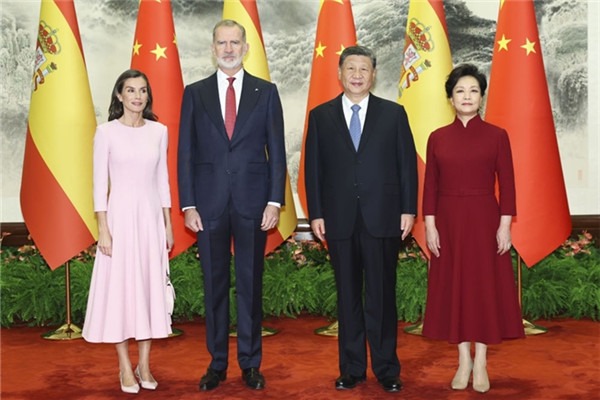Elderly need better health management services

Experts have called for both public and private nursing homes to offer more comprehensive health services for the elderly and to hire more professional health managers to improve seniors' quality of life and sense of well-being.
The China Research Centre on Aging and the China Health Promotion Foundation jointly released a report on Wednesday focusing on the quality of health management in nursing homes. The report is based on surveys conducted at 452 elderly care institutions across eastern, central, western and northeastern regions of the country from September to October 2024.
According to the report, most elderly residents in nursing homes are age 70 and above, and over 80 percent of those surveyed have chronic diseases. About 60 percent have lost basic mobility functions.
The survey found the prevalence of chronic diseases among residents stands at 83.9 percent, while the rate of disability is 62.3 percent.
The report said 95.1 percent of the surveyed institutions provide annual health checkups for residents. About 94.2 percent regularly evaluate physical health, 84.1 percent assess emotional health and 83.8 percent conduct regular cognitive assessments on their residents.
However, most nursing homes face a shortage of professional health managers, with only 44.2 percent filling these positions. Nearly half the facilities said the lack of professional personnel was the main challenge.
Most nursing homes still rely on traditional health monitoring tools and lack smart or high-tech wearable devices such as intelligent glucose meters and blood pressure monitors, the report said.
It added that limited financial resources among elderly residents also hamper efforts to improve health management services.
Luo Xiaohui, deputy director of the Institute of Health and Aging at the China Research Centre on Aging, said authorities should guide nursing homes to set up scientific and reasonable pricing systems for health management services.
She suggested authorities explore ways to include certain health management programs in medical insurance and encourage commercial insurance providers to develop senior health insurance products that cover such services.
"It's necessary to establish basic standards to regulate health management services at nursing homes to improve their quality and efficiency," she said. "Cultivating professionals in elderly health management is also important, which can be advanced by introducing relevant courses at vocational schools and universities, refining evaluation systems for health managers, and strengthening training for nursing home workers."
Gao Chengyun, Party secretary and director of the China Research Centre on Aging, said the country's nursing homes are poised for a transformation in health management services, offering personalized care plans for nutrition, exercise and rehabilitation through big data and artificial intelligence.
He said greater attention will be given to the elderly themselves, with psychological health, social engagement and elderly-friendly facilities becoming new indicators of a nursing home's performance in health management.
The latest figures from the Ministry of Civil Affairs show that as of the end of 2024, China had 310.3 million people age 60 and above, accounting for 22 percent of the total population. At the end of 2023, the figure was about 297 million, or 21.1 percent of the population.
As of the end of 2024, there were about 406,000 elderly care institutions and facilities nationwide, offering more than 7.99 million beds for seniors, according to the ministry.
- Elderly need better health management services
- Forum held in Beijing to promote cross-Strait development, exchange
- Xi, president of Comoros exchange congratulations on 50th anniversary of ties
- Retired medical workers urged to support seniors
- Typhoon Fung-wong makes landfall in Taiwan
- Police seek clues on illegal activities of Taiwan secessionist social media influencers





































